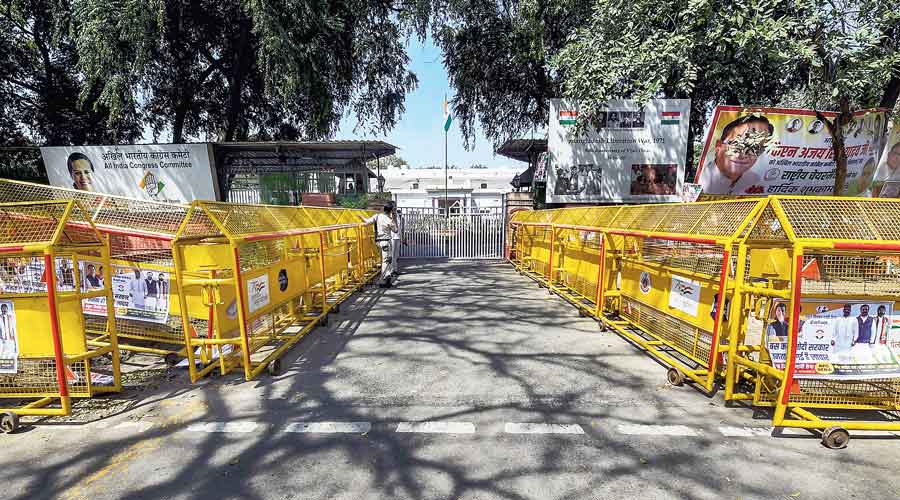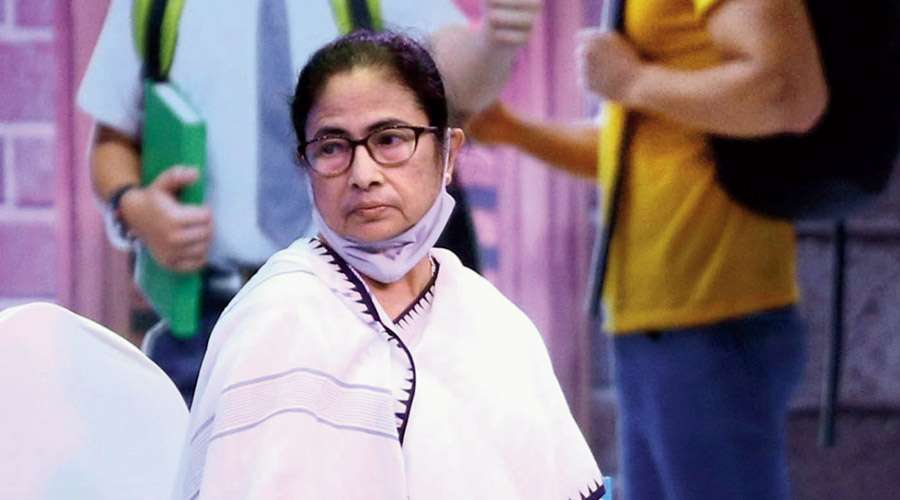Like lamb to the slaughter, the Congress was the easiest target and the worst victim in the Assembly elections which will have grave consequences for the oppositional politics in the country.
While the Congress achieved its worst-ever performance in Uttar Pradesh with a shameful 2.4 per cent votes, it was decimated in Punjab by the Aam Aadmi Party which had reduced it to zero in the national capital. In Goa, the dreams of snatching power from the BJP — which grappled with a 10-year-strong anti-incumbency — lay shattered. In Uttarkahand and Manipur also, the same story of wreck and ruins.
The result created panic in the party. While some wondered if there was any chance of a reversal of fortunes, others predicted far bitter internal clashes. The dominant view was that the outcome gives credence to the perception that the Congress was unable to fight back and had become a liability for the entire Opposition. Many fear that Rahul Gandhi’s credentials as the principal Opposition leader will also be seriously challenged now.
The unambiguous message that has gone out to the country is that the Congress is not battle-ready and the BJP is comfortably placed despite Narendra Modi’s inability to deliver on the promises in the last seven years. The message is clear that there is no alternative ready to dislodge the Modi government. This message may further tell on Congress’s credibility and it will find controlling the narrative far more difficult than it was doing in the post-Covid era.
What shocked the party workers most is the wipe-out in Uttar Pradesh. There is a popular opinion that the Congress doesn’t have the stomach to fight on the ground and states such as Bihar, Bengal, Odisha, Andhra Pradesh and Tamil Nadu bear testimony to that. But Priyanka Gandhi led a valiant political struggle in Uttar Pradesh. She not only gave voice to the people’s concerns and stood by them in their miseries over the last three years, she also rebuilt the moribund organisational machinery.
With this unique combination of charisma and hard work, Priyanka was expected to send out an unmistakable signal of Congress revival in the key state. Though the Congress wasn’t in the race to form the government and the viciously polarised ambiance whittled down its chances of any significant win, every leader expected the vote share to rise substantially. The party notched up its worst performance, far worse than elections in which they were mute spectators.
The Congress sought to draw solace from the fact that the party reached every nook and corner of the state by contesting all the 403 seats, with Randeep Surjewala claiming the sprouts will soon grow into big trees. However, the outcome has struck fear into the hearts of ordinary workers who see a dark future ahead. Some leaders privately argued that the Samajwadi Party’s inability to form the government will leave much bigger space for the Congress to play in the parliamentary election but conceded that the BJP’s victory indicated Narendra Modi’s popularity was intact in these extremely adverse circumstances.
The ruinous state of economy, peaking unemployment, the havoc played by Covid and the savagely rising prices created an ideal platform for the Opposition to dent the BJP’s support base. The Samajwadi Party exploited the situation by tripling its strength but the Congress miserably failed to make inroads in Uttarakhand and Goa. This reinforced the absence of killer instinct in the Congress, in addition to the sorry spectacle of internal mess that was demonstrated in Punjab.
The state chief Navjot Singh Sidhu’s slings and arrows were targeted at chief minister Charanjit Singh Channi. Internal rifts were the greatest concern in Uttarakhand as well where the central in-charge Devendra Yadav and former chef minister Harish Rawat were working at cross-purposes.
In both Goa and Punjab, the Congress’s vote share hovered around 23 per cent while it reached 38 per cent in Uttarakhand. While the BJP hyped up its campaign by laying emphasis on the beneficiaries of welfare schemes, the Congress promised Rs 6,000 every month for the poor, apart from capping the price of gas cylinder at Rs 500 only to be rejected by the people. There is a nagging concern among a section of leaders that the credibility crisis that the party suffered in 2014 hasn’t been addressed as yet.
These results are bound to affect the party’s morale in the next big battle of Gujarat, which the BJP will now fight with a renewed vigour. Asked about the way out of this vortex, one party veteran said: “All the office-bearers should resign and a new team should be put in place without any delay. Organisational elections will keep happening but the entire focus should be on building the organisation brick-by-brick. The attitude to let go the disgruntled elements should change. We need unity of purpose and reconciliation.”
Accepting the party’s inability to translate its good work into votes, Surjewala said: “We gave in Charanjit Singh Channi a humble, clean and grassroots leader in Punjab but couldn’t overcome the ill effects of captain Amrinder Singh’s misgovernance. People voted for change. Uttarakhand and Goa results have shown we need to work harder on the ground. Sonia Gandhi has called the working committee meeting where we will analyse the elections and take corrective measures. We are disappointed but not disheartened.”


